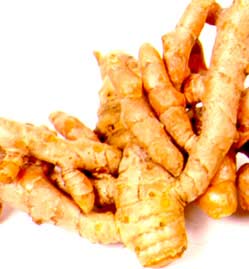Curcumin in Turmeric: A Promising Anti-Cancer Compound
 |
|
Curcumin in turmeric is regarded as the most representative compound for a new generation of anti-cancer agents (Image: news-medical) |
Curcumin is the main active ingredient in turmeric, recognized for its high purity and absence of toxic agents. It is one of the most potent anti-cancer compounds, effectively destroying malignant cells while leaving healthy cells unharmed.
Curcumin inactivates cancer cells and prevents the formation of new cancer cells without affecting surrounding healthy cells. In contrast, many other medications that target malignant cells also damage healthy cells, leading to fatigue, loss of appetite, hair loss, and nausea; in some cases, patients may succumb before their condition improves.
Curcumin has a powerful ability to eliminate free radicals and carcinogenic enzymes found in food and drink. Therefore, it helps the body actively prevent and combat cancer, not just during treatment. This capability is especially beneficial for the elderly and those with compromised health.
Curcumin also exhibits strong antifungal and antibacterial properties. It can effectively “interrupt” one of the links in the HIV infection process. Hence, curcumin holds great potential for treating Hepatitis B, C, and HIV at a low cost.
Additionally, curcumin in turmeric has detoxifying properties and protects liver cells, increases red blood cell production, lowers blood lipids, clears acne, promotes hair growth, and reduces hair loss. It is also a typical anti-inflammatory and antioxidant agent that can be used like a corticosteroid in treatment without the risks of osteoporosis or causing gastric ulcers.
In many countries, turmeric is regarded both as a medicine and as food. Its active ingredient has been used by the pharmaceutical company Sabina (USA) to formulate drugs for over 20 types of cancer. Specifically for blood cancer, curcumin has only been shown to help increase red blood cells and combat fatigue.


















































